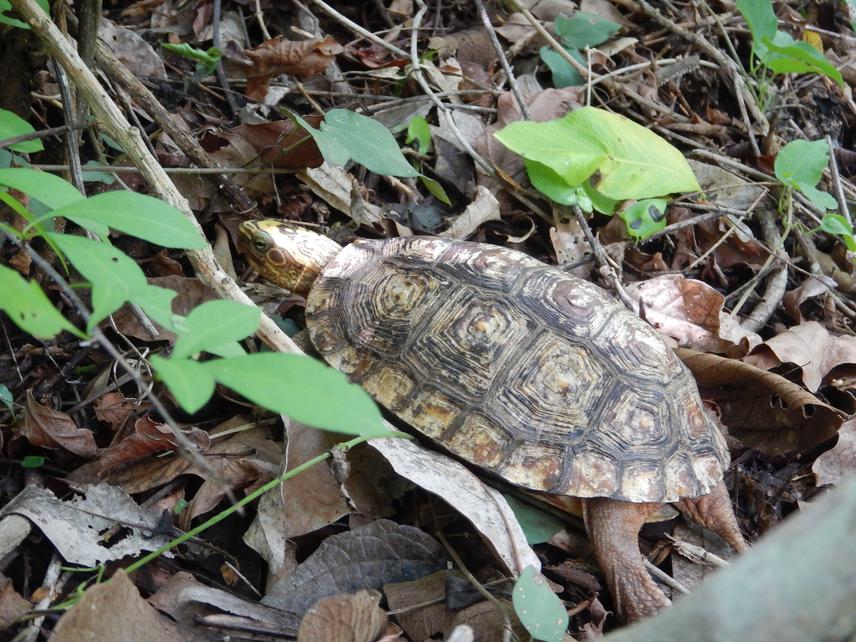Taggert Butterfield
Other projects
25 Jun 2019
Working with the Local Community to Establish a Baseline for Conservation of the Freshwater and Terrestrial Turtle Species near Sabinito Sur, Mexico
We aim to investigate ecological patterns of the endemic Mexican Spotted wood turtle in its tropical deciduous forest habitat using radio telemetry. We are achieving this goal by actively tracking turtle movements to calculate home ranges of individuals, identifying crucial habitat features, and using isotopes to identify the composition of diet and how it changes over its life time.

A female Mexican spotted wood turtle (Rhinoclemmys rubida perixantha) as observed in the field.
Seasonally tropical dry forests (STDF) are imperilled worldwide, in Mexico alone only 27% of its original extent is intact today. Moreover, turtles worldwide are also at danger with half of all species receiving special protection from IUCN. In particular, the most diverse family of turtles, Geoemydidae, containing ¼ of all turtle species also has the most representatives on the list of world’s top 25 most endangered turtle species. This project aims to understand the natural history and ecological services of geoemydids in the STDF ecosystem to aid in the construction of sound conservation plans for these threatened turtles and their fading ecosystems.
To meet our goals we are investigating the Mexican Spotted wood turtle (Rhinoclemmys rubida perixantha), a geoemydid endemic to the STDF of Western Mexico. We are actively monitoring 12 adult individuals using radio telemetry, measuring turtle microhabitat characteristics, and analyzing the isotopic composition of turtle shell rings. With these data we plan to identify spatial use of habitat, important microhabitat structures, composition of diet, and how diet changes over a turtle’s lifetime.
These data coupled with field observations will be used to understand habitat features and resources critical to small terrestrial turtles in tropical environments and their role in the ecosystem. Additionally, we will share our information with the local community through activities at the Biological Station of Chamela, Jalisco, Mexico and an ongoing outreach program at Central Washington University.